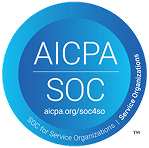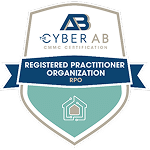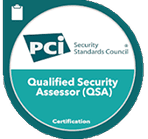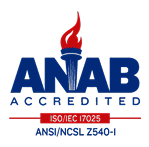Regarding compliance, choosing between a cost-effective, check-the-box auditor, a mid-range firm, or a big-name security compliance firm goes beyond financial considerations. This decision can significantly impact your organization’s reputation, operational efficiency, and long-term success. A strategic choice now can lay the groundwork for future resilience and growth.
Cybersecurity compliance is crucial for maintaining a company’s reputation, security, and operational integrity. However, the cybersecurity regulatory environment is dynamic and complex. Therefore, choosing the right auditor is a critical decision that can significantly impact your bottom line.
On the one hand, you can engage a cost-effective, check-the-box auditor—often seen as a quick, inexpensive way to meet the minimum regulatory requirements. Conversely, you can invest in a more extensive audit by a big-name security compliance firm that thoroughly examines your organization’s practices and controls at a hefty premium. However, there’s a ‘middle force’ in the mix—these regulatory compliance firms that incorporate value and quality to deliver effectiveness every time.
The choice between these three options is not just about price; it’s about understanding the long-term implications for your business, from risk management to brand trust and operational efficiency. This blog will explore the costs associated with compliance audits and compare the cost-effectiveness between check-the-box auditors, big-name security compliance firms, and the ‘middle force.’
Understanding Compliance Costs
Direct Costs
1. Auditor Fees: The fee the auditing firm charges is often the most immediate and visible cost associated with compliance. This fee can fluctuate widely based on several critical factors:
-
- Complexity of Systems: The more complex your organization’s information systems and processes, the higher the audit fee is likely to be. Complex systems often require extensive testing and evaluation to ensure compliance, translating into higher costs.
- Scope of the Audit: A thorough audit that covers all aspects of your operations, including internal controls, risk management, and data protection measures, will generally cost more than a limited or partial audit. The scope dictates the depth and breadth of the auditor’s examination.
- Reputation of the Auditing Firm: Big-name compliance auditors often command premium rates. These firms bring a wealth of experience, extensive resources, and a track record of thorough audits. Their reputation for delivering detailed and reliable audit reports can justify their higher fees. On the other hand, less established or cheaper auditors may offer lower rates but might need more depth and detail for a detailed assessment. Their services might be sufficient for basic compliance checks but could fail to identify nuanced risks or vulnerabilities.
2. Implementation Costs: Post-audit, organizations may face additional expenses related to implementing the auditor’s recommendations. These costs can be substantial and encompass several areas:
-
- System Upgrades: Implementing recommended upgrades often involves significant investment in new technologies or enhancements to existing systems. For example, if the audit reveals that your security infrastructure is outdated, you might need to invest in advanced security solutions to meet compliance standards.
- New Technology: Compliance may require new tools and systems, such as advanced data encryption, automated tracking, and incident response mechanisms. These investments can be substantial, especially when integrating new technologies into existing infrastructures.
- Staff Training: Training staff to manage new compliance protocols is a significant expense. Effective training ensures employees understand and execute new procedures or use new systems, which may involve hiring external trainers or developing internal training programs.
- Process Restructuring: Compliance often requires changes to business processes, including reengineering workflows, updating policies, and implementing new operational practices. This may necessitate temporary adjustments that impact daily operations and resource allocation.
3. Ongoing Compliance Maintenance: To remain compliant, your organization must regularly monitor its systems and processes, ensuring they meet regulatory standards. This involves periodic audits, updates to policies and procedures, and ongoing staff training. These activities are essential for avoiding non-compliance and the associated risks.
Indirect Costs:
1. Reputation Risks: The impact of a superficial or poor-quality audit can be far-reaching. If an audit fails to uncover critical compliance issues, your organization may become vulnerable to data breaches, regulatory violations, or other security incidents. Such lapses can damage your organization’s reputation, eroding client, partner, and stakeholder trust. In the long run, this damage can result in a loss of business and a diminished competitive edge.
2. Operational Disruptions: Compliance processes may require significant changes to your business operations, leading to temporary disruptions. Adjusting workflows to comply with new standards can affect daily operations, resulting in lost productivity and revenue, which can be costly for businesses with continuous operations or limited resources. Knowing these potential disruptions can help you plan and manage your resources effectively.
3. Potential Fines and Penalties: A less thorough audit risks missing compliance issues, leading to hefty fines and penalties. Non-compliance can result in substantial financial penalties and long-lasting effects on your business. Rectifying compliance issues after a failed audit is costlier than investing in a high-quality audit.
Comparing Auditors: Check-the-Box vs. Big-Name Security Compliance Firms vs. Mid-Range Firms
Check-the-Box Auditors
Organizations often choose check-the-box auditors to meet compliance requirements quickly and at a lower cost. These auditors use a standardized, one-size-fits-all approach, focusing on ticking off items on a regulatory checklist. However, this approach may not adequately identify underlying risks or vulnerabilities specific to the organization’s goals and objectives.
Pros and Cons:
Pros:
- Lower Costs: One of the main advantages of check-the-box auditors is their cost-effectiveness. This can be a compelling option for organizations with limited budgets, allowing them to achieve compliance without a significant financial outlay.
- Quicker Turnaround: Due to their ‘check-the-box’ nature, these audits are typically faster to complete, making them attractive to organizations under time constraints or those seeking to satisfy compliance requirements quickly.
- Sufficient for Basic Compliance: For companies in less regulated industries or those with straightforward operations, a check-the-box audit might be enough to meet basic regulatory standards without a more in-depth examination.
Cons:
- Potential to Bypass Critical Compliance Issues: Due to their standardized and superficial nature, check-the-box audits may overlook significant compliance issues that could lead to future regulatory breaches, fines, or security incidents.
- Less Personalized Service: The one-size-fits-all approach means that these audits are not tailored to your organization’s unique needs and risks, potentially leaving critical areas unexamined.
- Inadequate Preparation for Future Regulatory Changes: Regulatory environments are dynamic, and what meets the minimum standards today may not suffice tomorrow. Check-the-box audits may not equip your organization to adapt to evolving compliance landscapes, leading to potential non-compliance.
Big-Name Compliance Auditors
Big-name security compliance firms present themselves as leading the gold standard in security compliance auditing, offering extensive experience, resources, and industry-specific knowledge. They provide customized audits to understand and mitigate unique risks, deploy multidisciplinary teams to assess controls and systems, and provide insights for enhancing security posture and operational resilience.
Pros and Cons:
Pros:
- Extensive and Detailed Audits: Big-name firms provide thorough audits beyond surface-level checks, delving deep into your organization’s operations to identify potential vulnerabilities and compliance gaps.
- High Level of Expertise: These firms are staffed by experts with deep industry knowledge and experience, ensuring the audit is conducted professionally and accurately.
- Greater Assurance of Compliance: The detailed nature of these audits offers greater assurance that all compliance requirements are met, reducing the risk of future regulatory breaches and associated penalties.
- Tailored Recommendations: Big-name firms offer customized recommendations based on your organization’s specific risks and needs, helping you implement changes that enhance your security and compliance posture.
Cons:
- Higher Cost: Big-name firms bring extensive resources and expertise to an audit at a premium price. This can be a significant investment, particularly for smaller organizations or those with limited budgets.
- Longer Audit Process: Due to the thoroughness of the audit, the process can be longer and more involved, which may disrupt day-to-day operations.
- Potential Operational Disruptions: The thorough nature of these audits might require more time from your staff and greater access to your systems, potentially leading to short-term disruptions in everyday business activities.
Mid-Range Compliance Firms
Mid-range compliance firms provide a balanced alternative between check-the-box auditors and large security firms, addressing organizations’ critical compliance needs without the high costs typically associated with more prominent names. Although these firms may lack widespread brand recognition, they are staffed with highly experienced professionals who offer deep expertise. Their defining feature is their focus on delivering thorough, customized audits that align with a company’s operational, compliance, and financial goals.
Unlike check-the-box auditors who follow a one-size-fits-all approach, mid-range firms take the time to understand each client’s unique compliance challenges. They tailor their audit processes to meet regulatory requirements and establish proactive strategies for ongoing compliance. This personalized attention is especially crucial for healthcare, finance, and technology industries, where rapid changes demand continuous vigilance to avoid costly penalties and reputational damage.
Moreover, mid-range firms excel in providing a client-centered experience, offering flexible engagement models and personalized service. Their adaptability allows them to adjust audits to suit industry-specific needs, ensuring practical solutions considering a company’s current resources. This flexibility reduces the risk of operational disruptions during the audit process, making them an ideal choice for organizations seeking quality and efficiency.
Pros and Cons:
Pros:
- Cost-effective without sacrificing quality: Mid-range firms offer an excellent balance between thoroughness and affordability. Their fees are typically lower than big-name firms, but they don’t cut corners when providing in-depth audits. This allows businesses to achieve robust compliance without straining budgets, a key advantage for small to midsize businesses (SMBs).
- Personalized service: One critical differentiator for mid-range firms is their ability to build strong, ongoing client relationships. Unlike larger firms that may adopt a more standardized approach due to their scale, mid-range firms often provide a more tailored experience, working closely with internal teams to craft strategies that address specific vulnerabilities and compliance gaps. This personalized service usually results in higher client satisfaction and a more effective compliance program.
- Flexible, tailored audits: Mid-range compliance firms pride themselves on adjusting the scope of audits based on the organization’s size, industry, and risk profile. Whether a company needs a complete compliance overhaul or a targeted audit in specific areas, these firms can provide audits that match the client’s needs. This flexibility extends to their ability to scale services over time, supporting businesses as they grow or face new regulatory requirements.
Cons:
- Less brand recognition than big-name firms: One trade-off when working with a mid-range firm is that they typically have different brand recognition or prestige than industry giants. While this may not affect the quality of the audit itself, some organizations may prefer to work with well-known firms for credibility, especially in highly regulated sectors where a big-name endorsement can carry weight.
- They may have more limited resources than larger firms: Though mid-range firms are competent, they may not have the same breadth of resources—such as global reach, advanced proprietary tools, or large staff pools—that more prominent firms can leverage. This can sometimes lead to longer timelines for more complex audits or limit their ability to take on larger, multinational clients. However, for businesses that don’t require the extensive infrastructure of a global firm, these limitations are often minimal and more than offset by the personalized service and cost-effectiveness offered.
Long-Term Implications
Impact on Business Success
Choosing a check-the-box auditor or a big-name security compliance firm can have profound long-term implications for your business. While a check-the-box audit may save money in the short term, it could lead to significant risks, including missed compliance issues, regulatory fines, or data breaches. These risks can severely impact your organization’s reputation, financial health, and operational stability.
On the other hand, investing in a thorough audit by a big-name firm may involve higher upfront costs, but it can pay dividends in the long run. A thorough audit helps ensure that your organization is compliant and well-prepared to handle emerging risks and regulatory changes. This proactive approach can protect your business from costly compliance failures and position you for sustainable success in a competitive market.
Alignment with Business Goals and Risk Tolerance
Your choice of auditor should be closely aligned with your overall business goals and risk tolerance. Investing in a big-name firm is often well worth the cost for organizations prioritizing long-term stability, risk management, and reputation. These firms provide the thoroughness and expertise to safeguard your organization against compliance failures and security threats.
However, a check-the-box auditor might suffice for businesses with a higher risk tolerance or those operating in less regulated industries, mainly if cost and speed are more pressing concerns. Ultimately, the key is to carefully evaluate your organization’s needs, resources, and risk profile to make an informed decision that supports your long-term business objectives.
Strategic Considerations
Aligning Compliance Strategy with Business Objectives
Compliance should not be treated as a mere checkbox or regulatory hurdle; instead, it should be integrated into the core of your business strategy. This alignment ensures compliance efforts contribute to your organization’s broader goals, such as growth, innovation, and market leadership. Compliance seamlessly woven into your strategic planning can drive efficiency, enhance your reputation, and create competitive advantages.
- Impact on Growth: Compliance with industry standards and regulations can be crucial to business expansion. For instance, companies aiming to enter highly regulated markets, such as healthcare or finance, must demonstrate robust compliance practices. Meeting these requirements can open doors to new business opportunities, partnerships, and customer bases, ultimately driving growth.
- Impact on Risk Management: An effective compliance program is a cornerstone of risk management. By identifying and mitigating data security, privacy, and regulatory compliance risks, your organization can avoid costly breaches, legal penalties, and the reputational damage often accompanying non-compliance. This proactive approach not only protects your assets but also strengthens stakeholder confidence.
Choosing a Security Compliance Auditor
Consider the Complexity of Your Systems and the Scope of the Audit
The more intricate your systems and operations, the more thorough and expert your auditor must be. Assess the auditor’s ability to handle your organization’s specific challenges, whether it’s intricate IT infrastructure, global operations, or specialized industry regulations.
Evaluate the Reputation and Expertise of the Auditing Firm
An auditor’s reputation in the industry speaks volumes about their ability to deliver accurate, reliable assessments. Investigate their track record, client testimonials, and any available case studies. Big-name firms may offer greater quality assurance, but smaller, specialized firms can also provide deep expertise in niche areas.
Align the Choice with Your Business Goals and Risk Tolerance
Your choice of auditor should reflect the immediate need for compliance and your long-term business objectives. A high-caliber audit can be a valuable tool for improving operational efficiencies, safeguarding against future risks, and enhancing stakeholder confidence.
Consider Both Direct and Indirect Costs
When choosing an auditor, it’s essential to consider more than just the upfront fees. A cheaper audit might seem like a good idea, but the indirect costs can be substantial, including potential fines, operational disruptions, and damage to your reputation. Investing in a high-quality audit can help you avoid these pitfalls and set your organization up for long-term success.








